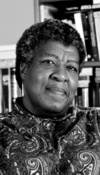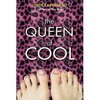So I am way behind the others at actually saying anything about most of the paltry six books I’ve read so far this year, but consider this my effort to catch up. I have been keeping the little star-based sidebar going down there at the end of the righthand column. And, because I have no time, I’m just thumbnailing these. (Or linking them, but the little sidebar will take you straight to the correct Amazon page and if you click and buy, I get a kickback. Just saying. Mama needs Wiscon plane tix.)
1. The Dreams Our Stuff Is Made Of: How Science Fiction Conquered the World by Thomas M. Disch – I read this after I did an interview with Kevin Brockmeier and he brought it up. Science fiction rules the world and all that. I semi-hearted it; finding some things a bit outmoded already, but still, interesting concepts and worth a read if you’re interested in this kind of thing. (I found the chapter on feminism in SF thinner than I wanted, but also think that’s just me and my own druthers and that the way it’s handled works fine in the context of the rest of the book.)
2. Manstealing for Fat Girls by Michelle Embree – A wonderful, gritty book about the horrific yet hopeful lives of poor teenagers in 1980s St. Louis. The period is perfectly evoked as is the real-deal, brutality of high school and just how ugly it can get. But, like I said, it’s a hopeful book too. The narrator, Angie, has a thoroughly charming, believable voice that owns the book. The promotional materials describe it as John Waters meets John Hughes and that’s apt, with perhaps some Harmony Korine thrown in. I stayed up late, late, late reading this one even though I was Martian Death Cold felled (and have Jenny D to thank for it — the book, not the cold).
3. Love Walked In by Marisa de los Santos – Loved it. See this.
4. Other Electricities by Ander Monson – (A reread, but it counts!) Liked it a great deal, even more the second time around. See this.
5. The Tourmaline by Paul Park – I’ll have more to say on this one at some point in the future. But: It didn’t disappoint. It does, however, suffer more than the The Princess of Roumania from the split, mostly at the beginning. It was hard for me to get back into the world and I kept just forcing myself to keep going and then lo and behold the second section of the novel came and it was suddenly an effortless read. Because the beginning of The Tourmaline is an ending. In fact, if just the first hundred pages of this one had been left at the end of Princess, it would have been better for both books. (And actually, this is my own weird tic, but I was more likely to pick these up as two not-huge novels instead of one big fat chihuahua killer. Although I disagree with the split on philosophical grounds, on purely selfish ones I accept it with grace.) Anyway, like I said, more to come, but yes, yay, next part, please.
6. The Rainbow Opera by Elizabeth Knox – An amazing first young adult novel by the amazing Elizabeth Knox (whose other novels, for adults, are some of my favorites). Justine first tipped me off to this one; you should read her more detailed post here. Anyway, if you’re a fan of big, complex dreamlands and maps and flawed, engaging characters and beautiful imagery and sand golems and big, sweeping set-ups and political intrigue… Getting my drift? This book unfolds in deceptively simple fashion, but underneath is a rich, complex story that, thankfully, continues in a coming-relatively-soon second installment (at least to countries from where it can be procured online). One of my favorite things was the best friendship at the heart of the story — it’s honestly drawn, with none of the cartoonish competition that so often characterizes the friendships of girls in fiction. And the ending is completely satisfying if cliff-hangery, but my copy (unlike Justine’s) did indicate it was part one of a "duet." I wish I wasn’t slammed so I could devote an entire post to this one.
I’m almost done with Justin Tussing’s book and a reread of Mothers and Other Monsters, but not quite, so I’ll let myself off those particular hooks for now. I’ve also started reading stories for the Fountain Award, which is tres fun so far, but counts not at all on the 75.

